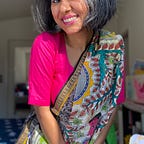Five books to read before you decide what is feminism
(Clockwise from top left) Virginia Woolf, Sylvia Plath, Mary Wollstonecraft, Betty Friedan and Simone de Beauvoir,. Source: Wikipedia
The word “feminism” has taken on different meanings for different people for many years now. The movement continues to baffle, empower, engage, and enrage women and men across the world equally.
Its history and the journey feminism took in the hands of powerful women writers is what this particular write-up is about.
In order to find out whether one identifies themselves as a feminist or not, it is important to first know its origin and how it has shaped the lives of women for more than 200 years now since it first started to appear in the public domain.
Being a literature student who has studied feminism formally, I am taking the liberty to share five books that I feel are absolutely essential to one’s understanding of the word.
A Room of One’s Own by Virginia Woolf
First published in 1929
Why read it: To understand why a woman needs solitude (a room of our own) and independence (in terms of money) to create value in her life (and in society) without “casual” interruptions.
By creating Shakespeare’s sister out of her imagination, Woolf makes the reader understand why women almost always find and will find it more difficult to attend to their calling and stick to it. A woman is bound to be defeated by patriarchy if she lets herself be motivated by what men have made her believe is the norm.
The Second Sex by Simone de Beauvoir
First published in 1949
Why read it: To understand that “one is not born, but rather becomes, a woman.”
The writer talks about how for the human species, man is the “default” while the woman is always the “other.” From menstruation and virginity to prostitution and motherhood, Beauvoir discusses it all, taking into consideration the history of the oppression of women.
“A woman has no other way out but to work for her liberation,” is a statement that makes a woman accountable for her own liberation and for the fight against patriarchy.
The Bell Jar by Sylvia Plath
First published in 1963
Why read it: To understand that for many women, oppression and suffocation due to patriarchy had and continues to result in mental agony of various degrees.
A lot of what Plath has written in her novel is about her own life and it’s tragic that she ended it a few months after the novel was published. Her personal story remains highly complicated even after her death and the book, her only published novel, speaks volumes about patriarchal oppression prevalent in 20th century America.
The Feminine Mystique by Betty Friedan
First published in 1963
Why read it: To understand what it meant to start off the second wave of feminism in the US and how matters that we now take for granted were raised for the first time in the history of womankind.
From interviews to anecdotes, the book has real women talking about what makes them unhappy and how their intellectual capacities are undermined by the patriarchal society.
A Vindication Of The Rights of Women by Mary Wollstonecraft
First published in 1792
Why read it: One can’t understand feminism or the need for it without reading what the “mother of modern feminism” had to say way back in the 18th century.
A radical piece of writing for its times, the book calls for female independence with an unprecedented passion and intellect. The book explores the emancipation of women by ensuring equal rights for both genders and an end to prejudice.
I hope you enjoy reading these books as much as I did. Share your thoughts and recommendations for other feminist books here to me at anoushkabhartia@gmail.com
And do let me know if reading any of these made you revisit your idea of what feminism stands for.
This article was originally published here.
